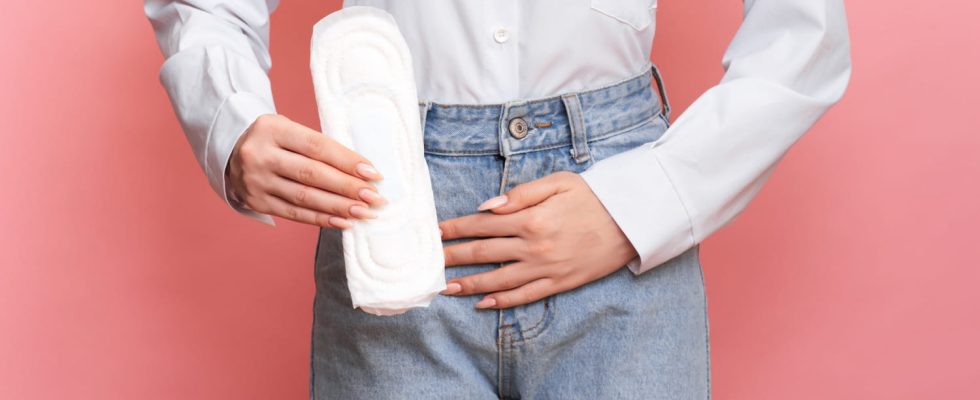It is normal for a woman who no longer has her period to worry. Is this a sign of pregnancy? A pathological cause? PCOS? With or without contraception?
An absence of periods is medically called “amenorrhea”. There are two types:primary amenorrhea when, at the age of approximately 16, the young girl has still not had her period andsecondary amenorrhea when a woman has already menstruated but her periods stop for three consecutive cycles. This cessation is physiological in the event of pregnancy, lactation (breastfeeding) or menopause. The absence of rules can sometimes be associated different signs. “Among them, a lack of development of secondary sexual characteristics (hair, chest, etc.) in the case of primary amenorrhea, hot flashes, headaches, mood disorders as well as weight gain”, explains Dr. Christelle Besnard-Charvet, gynecologist.
1. Pregnancy: the most obvious cause
Pregnancy is the most common cause of secondary amenorrhea in sexually active women. This phenomenon corresponds to the interruption of the ovulation cycle and therefore of menstruation. To validate this hypothesis and rule out other causes, it is advisable to carry out a pregnancy test. Other causes related to maternity include breastfeeding, which in some cases can suspend ovulation for a few months.
2. Take the pill continuously
Taking the pill continuously and certain intrauterine devices can lead to amenorrhea. These are not serious.
3. A psychological shock
A stress significant (sudden change in lifestyle, loss of a loved one) can lead to a delay or even complete cessation of periods, without this being a cause for concern.
4. An eating disorder
Anorexia, bulimia, an unbalanced or deficient diet as well as obesity can disrupt cycles and lead to amenorrhea.
5. Stopping taking the pill
After taking birth control pills for many years, the body may need a few months before the normal ovulation cycle resumes and menstruation returns. It is called “post-contraceptive amenorrhea“.
6. PCOS
An ovarian tumor, polycystic ovary syndrome (PCOS), damage to the uterus or vagina, hypothyroidism or hyperthyroidism can also cause periods to stop. Taking certain medications, such as antidepressantsare also in question.
7. (Pre)menopause
As estrogen production decreases, periods may become irregular before disappearing completely. In some women this may occur from the age of 45.
When to consult, when to worry?
“Consult as soon as your period is late, recommends Dr. Christelle Besnard-Charvet, and if you experience other symptoms, the girl is over 16 years old and has never had her period or it is possible that you are pregnant.”
What to do if you don’t have your period?
In most cases, the reason is benign and you just need to wait a few weeks to see the rules reappear. No treatment is prescribed, but lifestyle measures are recommended: eat a balanced and sufficient diet, avoid being overweight, manage stress and practice moderate physical activity. If you are sexually active, take a pregnancy test. “Consult your general practitioner or gynecologist who, depending on the questioning and clinical examination, will possibly prescribe tests, ultrasound and will give you the instructions to follow”, recommends Dr. Christelle Besnard-Charvet. Psychotherapy is sometimes recommended.
Thanks to Dr Christelle Besnard-Charvet, gynecologist.
